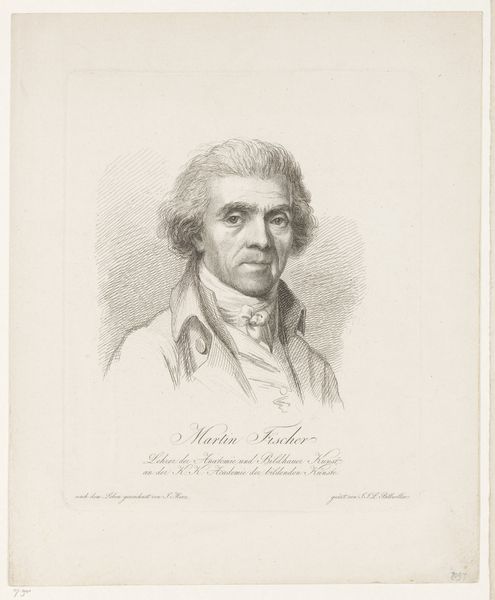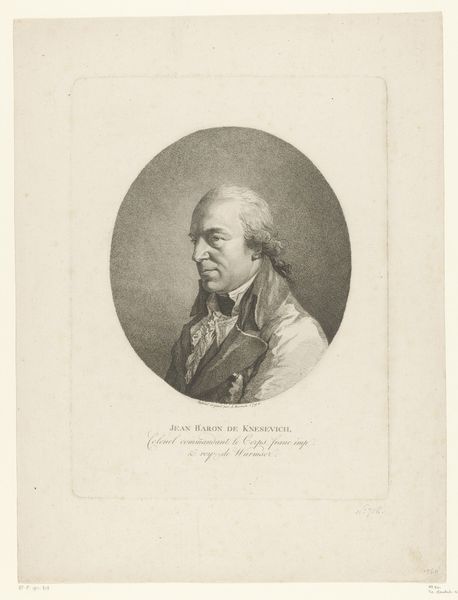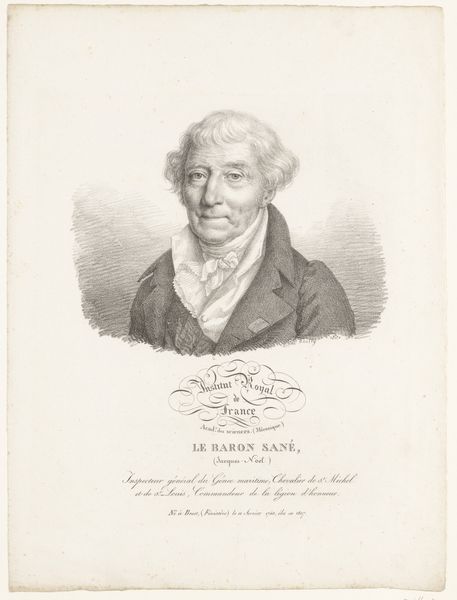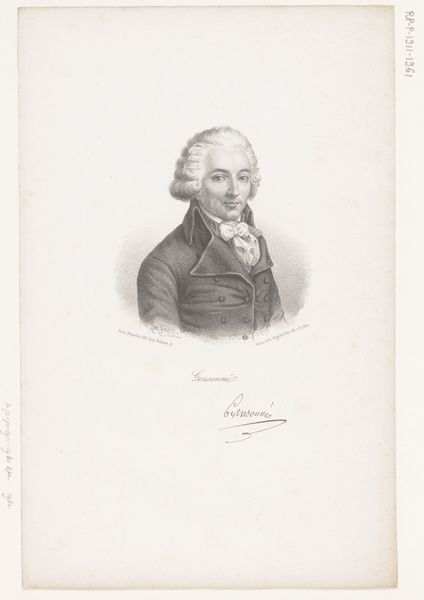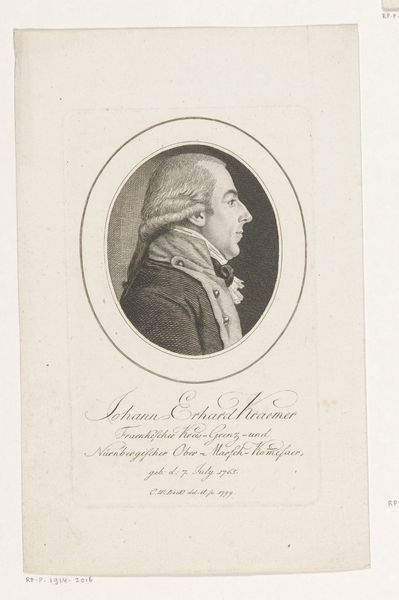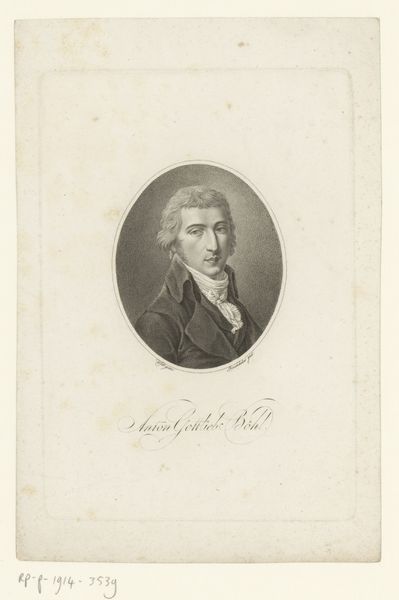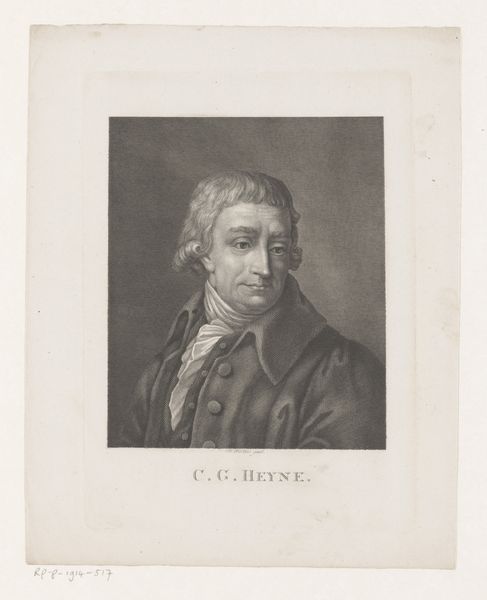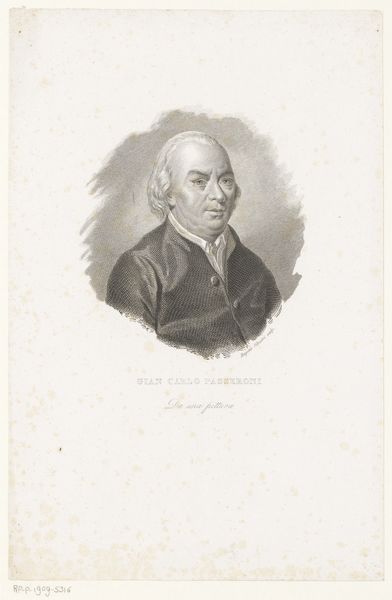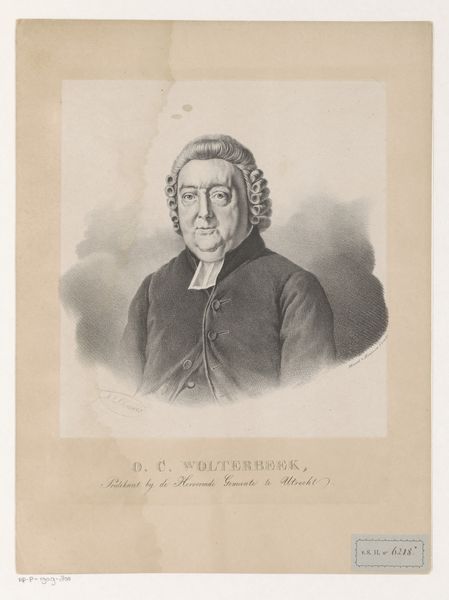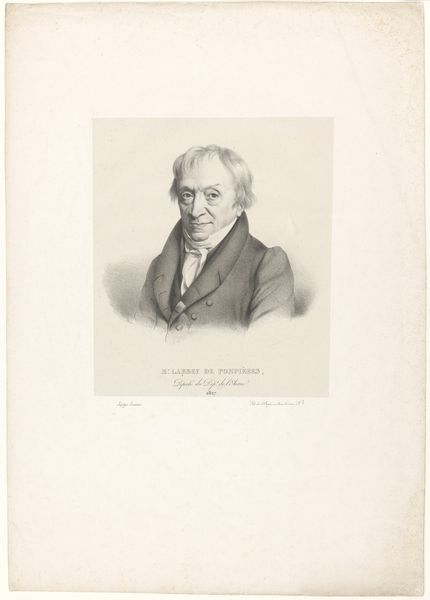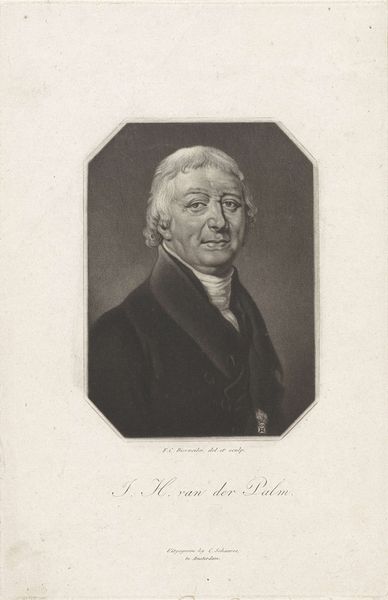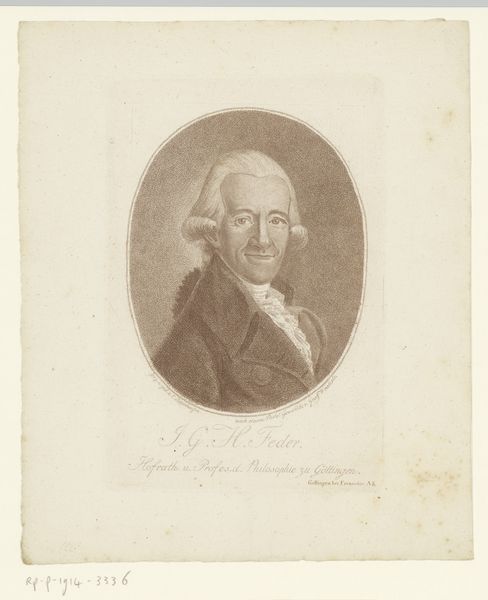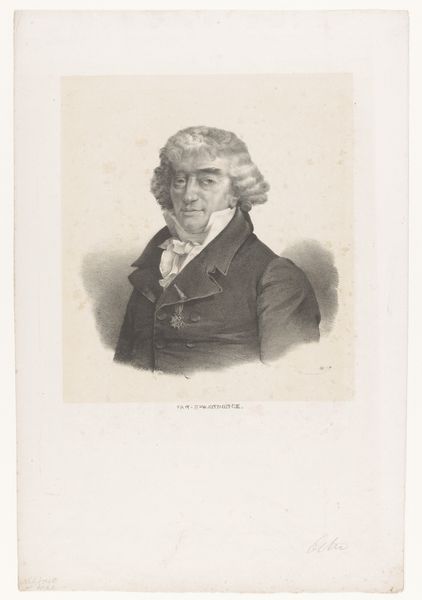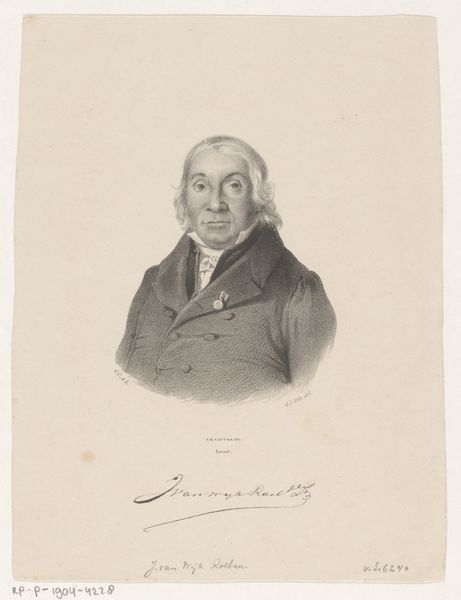
drawing, engraving
#
portrait
#
drawing
#
neoclacissism
#
pencil drawing
#
engraving
Dimensions: height 231 mm, width 191 mm
Copyright: Rijks Museum: Open Domain
Johann Jakob Laurenz Billwiller created this portrait of Hubert Maurer using etching and engraving, techniques that involve working into a metal plate to hold ink, which is then transferred to paper. Look closely, and you can see how the fine lines create subtle tonal variations that model Maurer's face. Billwiller would have used specialized tools to incise these lines, controlling the depth and density to achieve the desired effect. This meticulous process speaks to the skill and labor involved in traditional printmaking. This image represents a convergence of art and craft. The skills of etching and engraving were often applied in the service of reproduction and dissemination of knowledge, a critical element of the wider social and economic context. Billwiller's work exemplifies this intersection, blending artistic expression with the more functional aspects of print culture. When we consider this portrait, let’s think about not just the image, but also the processes through which it was created. By understanding the materials, techniques, and social context, we can gain a deeper appreciation for the print and challenge traditional distinctions between art and craft.
Comments
No comments
Be the first to comment and join the conversation on the ultimate creative platform.
